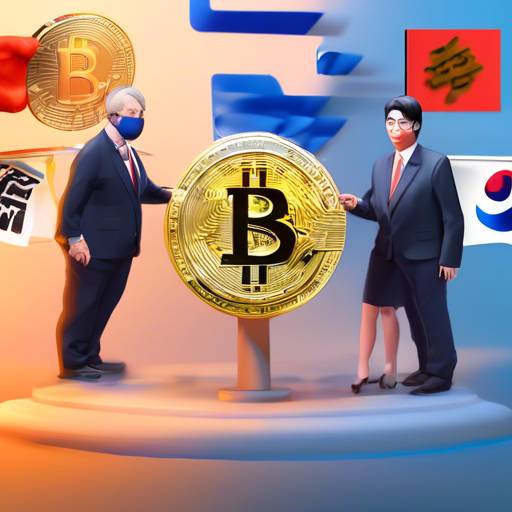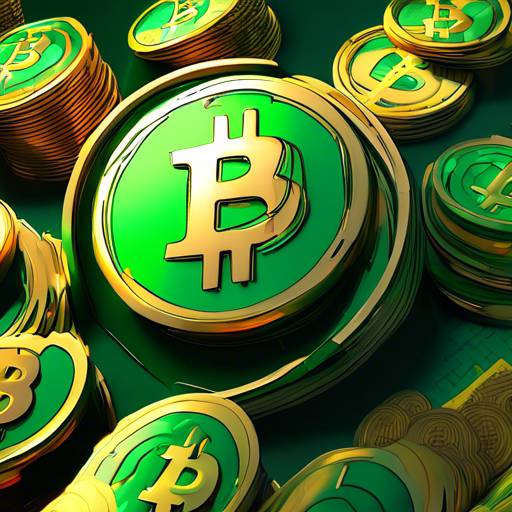In a significant development for the world of virtual finance, South Korean regulators and U.S. financial authorities are coming together to discuss the inclusion of non-fungible tokens (NFTs) and Bitcoin exchange-traded funds (ETFs). This meeting highlights the evolving landscape of digital finance and the regulatory challenges it faces.
South Korea & U.S. Discuss NFTs and Bitcoin ETFs
The convergence of South Korean and U.S. financial authorities to discuss the incorporation of NFTs and Bitcoin ETFs is a pivotal moment in the virtual finance realm. The local media in South Korea has reported this development, sparking discussions in the virtual asset sector.
The Chairman of South Korea’s Financial Supervisory Service (FSS), Lee Bok-hyun, is scheduled to meet with SEC Chairman Gary Gensler in May to begin discussions on including Bitcoin Spot ETFs and NFTs in the virtual asset domain. This initiative emphasizes the need for cohesive regulatory frameworks to navigate emerging digital markets.
NFTs have gained significant attention for their unique digital ownership certificates and their transformative impact on various sectors such as art, gaming, and entertainment. However, South Korea’s legal classification of NFTs remains ambiguous, with differing opinions on whether they should be considered technology, virtual assets, or securities.
What’s Next?
Insiders suggest that NFTs are excluded from the scope of virtual assets under South Korea’s forthcoming Enforcement Decree of the Virtual Asset Act due to a cautious approach driven by perceived low market risks. However, the rising prices and speculative fervor surrounding NFTs have led to calls for their formal recognition as tradable assets.
Critics argue that the lack of a clear legal framework for NFTs could have significant implications for businesses operating in this domain. The potential need for virtual asset business licenses and compliance certifications as part of stringent regulatory requirements may hinder innovation and market accessibility, particularly for startups and SMEs.
However, concerns have been raised about the potential encroachment on individual rights and privacy as increased regulatory oversight could facilitate extensive tracking and surveillance of NFT transactions.
Regarding Bitcoin ETFs, South Korea’s Financial Services Commission (FSC) issued an advisory in January highlighting potential violations related to brokering overseas-listed Spot Bitcoin ETFs. As a preemptive measure, major securities firms like Mirae Asset Securities and Samsung Securities suspended their brokerage services for Canadian and German Spot Bitcoin ETFs.
Stakeholders are eagerly awaiting the outcome of discussions between the FSS and SEC, as any revisions to the Enforcement Ordinance of the Virtual Asset Act will have significant implications for the broader digital economy. The results of these deliberations are expected to shape the future trajectory of virtual finance in a rapidly changing global regulatory landscape.
🔥Hot Take: South Korea & U.S. Collaborate on NFTs and Bitcoin ETFs 🔥
The collaboration between South Korean regulators and U.S. financial authorities to discuss NFTs and Bitcoin ETFs is a significant step towards addressing the regulatory challenges posed by emerging digital markets. Here are some key takeaways:
- The meeting signifies the growing importance of virtual assets in global finance.
- NFTs’ legal classification remains ambiguous in South Korea, leading to calls for formal recognition as tradable assets.
- The cautious approach towards NFTs reflects concerns about market risks but may stifle innovation.
- Increased regulatory oversight raises concerns about individual rights and privacy in NFT transactions.
- The advisory on Bitcoin ETFs highlights the need for regulatory clarity in this space.
- The outcomes of these discussions will shape the future of virtual finance and the broader digital economy.
As a crypto enthusiast, you should closely follow these developments as they have the potential to impact the accessibility and regulation of NFTs and Bitcoin ETFs. Stay tuned for updates on how these discussions unfold and the implications they hold for the virtual finance industry. 🚀





 By
By
 By
By
 By
By
 By
By
